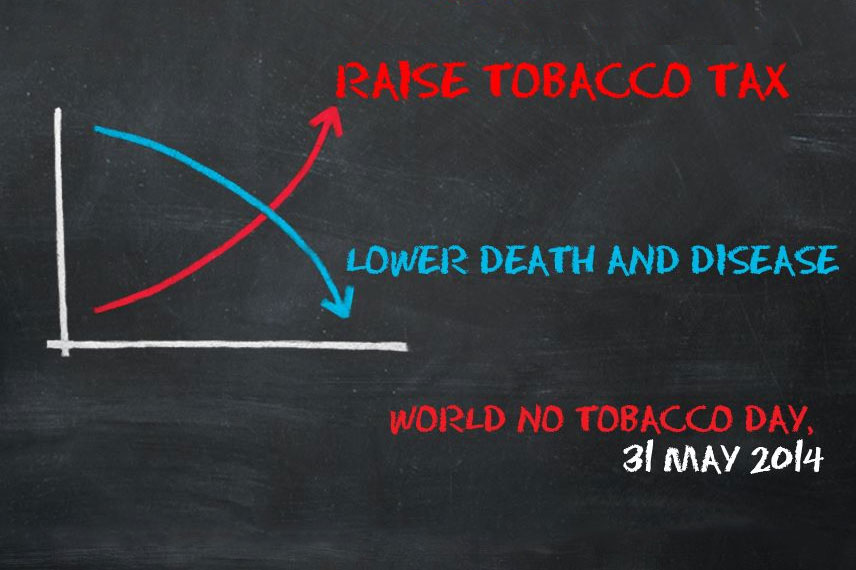April 18, 2024 07:53 (IST)

UN advocates for higher tobacco taxes to save millions
New York, May 31 (IBNS): Ahead of World No Tobacco Day, the United Nations health agency is calling on countries to raise taxes on tobacco to encourage users to stop and prevent other people from becoming addicted to tobacco.
“Raising taxes on tobacco is the most effective way to reduce use and save lives,” says Margaret Chan, the Director-General of the World Health Organization (WHO). “Determined action on tobacco tax policy hits the industry where it hurts.”
Based on 2012 data, WHO estimates that by increasing tobacco taxes by 50 per cent, all countries would reduce the number of smokers by 49 million within the next 3 years and ultimately save 11 million lives.
On Friday, someone dies from tobacco use every six seconds, the agency noted in a news release issued ahead of the Day, observed on May 31. Tobacco kills up to half of its users. It also incurs considerable costs for families, businesses and governments.
“Treating tobacco-related diseases like cancer and heart disease is expensive. And as tobacco-related disease and death often strike people in the prime of their working lives, productivity and incomes fall,” WHO pointed out.
High prices are particularly effective in discouraging young people – who have more limited incomes than older adults – from taking up smoking. They also encourage existing young smokers to either reduce their use of tobacco or quit altogether.
“Price increases are 2 to 3 times more effective in reducing tobacco use among young people than among older adults,” said Douglas Bettcher, Director of the Department for Prevention of Noncommunicable Diseases at WHO.
“Tax policy can be divisive, but this is the tax rise everyone can support. As tobacco taxes go up, death and disease go down,” added Bettcher.
WHO calculates that if all countries increased tobacco taxes by 50 per cent per pack, Governments would earn an extra USD 101 billion in global revenue.
“These additional funds could – and should – be used to advance health and other social programmes,” Bettcher stated.
Countries such as France and the Philippines have already seen the benefits of imposing high taxes on tobacco. Between the early 1990s and 2005, France tripled its inflation-adjusted cigarette prices, and subsequently saw sales decrease by more than half.
A few years later the number of young men dying from lung cancer in France started to go down.
In the Philippines, one year after increasing taxes, the Government has collected more than the expected revenue and plans to spend 85 per cent of this on health services.
Tobacco use is the world’s leading preventable cause of death, killing nearly 6 million people each year, of which more than 600,000 are non-smokers dying from breathing second-hand smoke.
If no action is taken, tobacco will kill more than 8 million people every year by 2030, more than 80 per cent of them among people living in low- and middle-income countries.
(World No Tobacco Day 2014. Credit: WHO)
Support Our Journalism
We cannot do without you.. your contribution supports unbiased journalism
IBNS is not driven by any ism- not wokeism, not racism, not skewed secularism, not hyper right-wing or left liberal ideals, nor by any hardline religious beliefs or hyper nationalism. We want to serve you good old objective news, as they are. We do not judge or preach. We let people decide for themselves. We only try to present factual and well-sourced news.
Support objective journalism for a small contribution.
Latest Headlines
TikTok's separation from parent ByteDance superficial; sent US users' private data every 14 days to China: Report Thu, Apr 18 2024
Pakistan bans X over alleged 'misuse' Wed, Apr 17 2024
Hike in petrol price challenged in Pakistani court Wed, Apr 17 2024
Fire partially destroys old stock exchange building in Denmark Wed, Apr 17 2024
Twenty-one die due to rain-related incidents in Pakistan's KP Wed, Apr 17 2024







